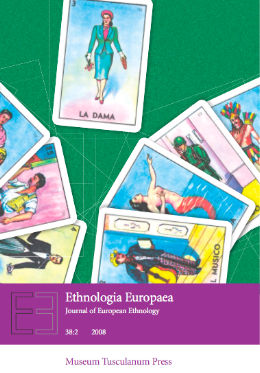(update 30.7: IUAES-anthropologists “praise” Chinese government’s relation to minorities) As I wrote a few days ago, the vice president of the International Union of Anthropological and Ethnological Sciences (IUAES) Petr Skalník decided to boycott the IUAES congress in Kunming, China due to the recent massacre where several hundred Uyghurs were killed.
“I do not want to be part of overt and/or tacit legitimation of evidently erroneous handling of nationality question in China”, he wrote in an open letter.
The conference started today and it is interesting to see how the Chinese authorities use the conference to promote both China and to legitimize their minority policy.
China anthropology enters new stage, more active in global study is the headline in People’s Daily Online.
They write about the vice-chairman of the 16th congress’s organizing committee, Hao Shiyuan, who said that “Chinese anthropology mainly focused on application research”. And in one case, he said, “more than 1,000 local anthropological scholars had took up fieldwork in 1950s to collect first-hand data and advise the government on the management of ethnic groups.”
Then they quote the IUAES President Vargas with these words: “Many anthropologists are interested in studying specific questions in China, as well as looking at the solutions that our Chinese colleagues have proposed to problems that are similar in other countries.”
The headline of an article by the offical Xinhua news agency is China listening to int’l experts in pursuit of coexistence of diversified cultures. We read that the Chinese Vice Premier Hui Liangyu delivered a speech at the opening ceremony. He said that the Chinese government “has attached great importance to the development of anthropological and ethnological sciences, and actively promotes theoretical studies, innovation and application.”
In a critical blog post at gokunming.com, we read that Yunnan University, which is hosting the congress, is off limits to the general public: “entry is only granted to registered participants who must display passes. Additionally, the university’s perimeter is under heavy police watch”:
No official explanation for barring the general public from Yunnan University’s main campus has been given, there are several possible reasons, including the attendance of Chinese Vice Premier Hui Liangyu at this morning’s opening ceremony.
In his address to the congress, Hui said that “pushing forward dialogues and cooperation among different civilizations is a joint responsibility of individuals and governments.”
Despite Hui’s upbeat statement, the recent ethnic violence in Xinjiang that left hundreds dead is likely a cause for ramped up security. Another potential reason for government uneasiness may be the occasional overlap between anthropology and intelligence gathering operations.
UPDATE 29.7.09: More from the offical Xinhua news agency: China says its ethnic policies “on right track”:
A senior Chinese official said Monday the government’s policies on ethnic affairs are “on the right track” and have helped create conditions for equality, unity and common prosperity among the country’s different ethnic groups.
Jia Qinglin, chairman of the National Committee of the Chinese People’s Political Consultative Conference (CPPCC), China’s top political advisory body, made the remark in his meeting with Luis Alberto Vargas, the President of the International Union of Anthropological and Ethnological Sciences (IUAES), who is in China to attend The 16th IUAES World Congress held in China southwest province Yunnan.
Jia said the living standards of the ethnic groups were rising steadily and their political, economic and cultural rights were well safeguarded.
UPDATE: More propaganda: IUAES-anthropologists “praise” Chinese government’s relation to minorities (Xinhua 30.7.09)
SEE ALSO:
Anthropology in China: IUAES-conference boycott due to Uyghur massacre
(update 30.7: IUAES-anthropologists "praise" Chinese government's relation to minorities) As I wrote a few days ago, the vice president of the International Union of Anthropological and Ethnological Sciences (IUAES) Petr Skalník decided to boycott the IUAES congress in Kunming, China…


